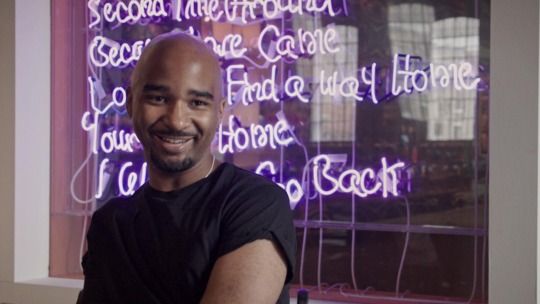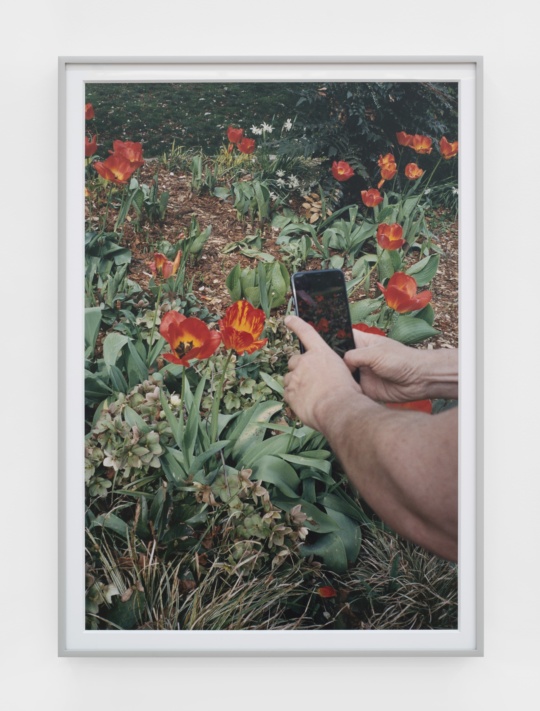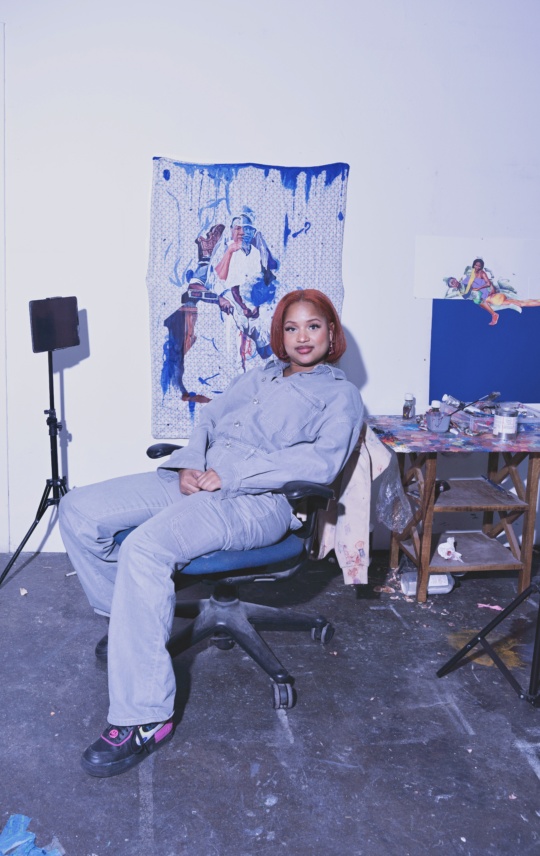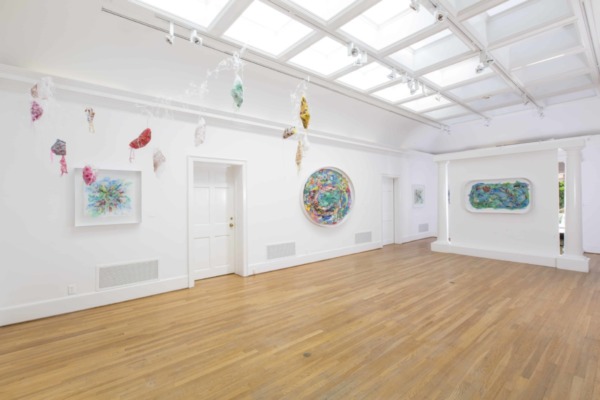
Before she’d gone to get the mail, she’d been happy as an ad.
— Thomas M. Disch, “334”
Amandine Drouet bedecks the Swan Coach House Gallery with what amount to the cheeriest of parti-colored shrouds imaginable in “Plastique,” her exhibition of bricolage and other work that won the Forward Arts Foundation’s 2014-15 Emerging Artist Award. Her longstanding interest in aquatic “flauna” manifests here in a new and welcome way, but the gist of this show comes in the form of objects that evoke textiles but employ actual fiber to a limited degree.
Drouet’s exhibition title puts her primary material on the marquee, albeit in French. Repurposed plastic, much of it bearing images of lighthearted corporate mascots, constitutes the majority of her works here. The artist uses heat to meld grocery bags, fruit sacks, bubble wrap, and other such stuff into items that often resemble quilts, which she decorates with thread that often dangles past the borders in her largest works. An untitled installation at the rear of the gallery employs similar fodder and techniques, along with distorted canned-drink rings, to conjure pouchy and sometimes organlike elements that hang from the ceiling. Despite that work’s more involved sculptural qualities, though, it couldn’t compel my attention the way Drouet’s intricate surfaces do.
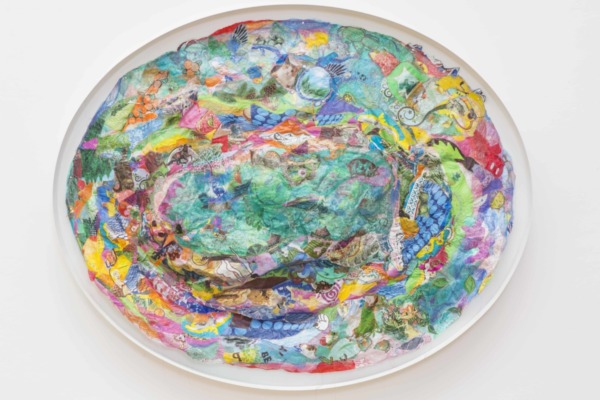
Some extended wall text etches the connection between plastic’s durability and its toxicity to our environment. Nothing on view here appears less toxic or more lively than Drouet’s centerpiece, La Terre ne Tourne pas Rond (The Earth Is Not Turning Around), however. Looking for all the world like, well, all the world, it incorporates images of no fewer than a dozen animals (a hog, doves, race horses, and anthropomorphized critters including Chuck E. Cheese and a dismembered Mickey Mouse), vegetation, landscapes, a relatively huge and centrally located but still easy-to-overlook happy face (its sunny complexion concealed beneath a layer of filmy blue), and a tinier smiley that might once have adorned a bag of clementines.
Thrillingly, even though Drouet’s supple title suggests that we’ve reached some sort of terminal orbit, that Mother Earth just had a chat with her doctor and got far worse news than expected, the artist also works in a wee green paradise. Set within its own little lenslike circle amid all else on this busy cartoon oval is a stand of trees; it intersects the most emblematic of wings. Is the artist holding forth a glimpse of hope? Or is she showing us Eden in flight? Or both?
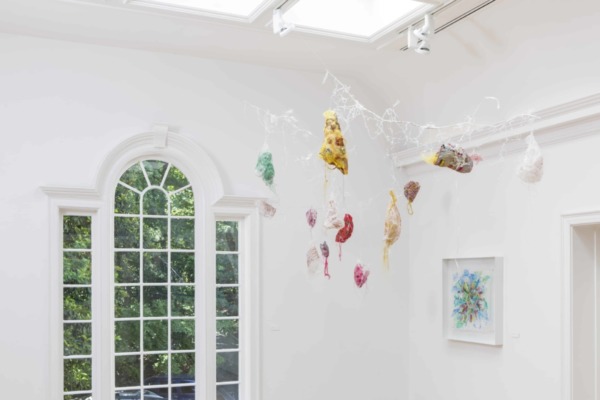
Across the gallery is evidence that Drouet has not abandoned the carved plastic bottles that made her 2010 Kibbee Gallery exhibition, “The Garden of Lost Chances,” so memorable — she’s mediating them now, however. A trio of light boxes shows what are probably larger-than-life images of sculpture that depicts plankton or the like —something at the elusive-to-the-naked-eye end of the food chain, in any case.
As they face the faux-macroscopic La Terre ne Tourne pas Rond, rPET-1 through rPET-3 imply a spectrum (as well as a specter) in the space between these very different works: a nod toward photomicroscopy, but free of anything actually microscopic; the superficial beauty of the natural world, but now with even less nature in it; the burgeoning understanding that science gives us of our teetering ecosystem and its interlocking complexities, so overwhelming that the average layperson’s grasp on these realities borders on caricature; the proliferation of human detritus, so way-past-out-of-control that it threatens to obliterate everything not itself. Plastic may be a synonym for fake, but Drouet crams urgent, ominous truth(s) into “Plastique.”
“Plastique” is on view at the Swan Coach House Gallery through May 27.
Alabama escapee Ed Hall writes journalism, poetry, and fiction. His work has appeared in Newsweek, the Atlanta Journal-Constitution, Code Z: Black Visual Culture Now, and the Dictionary of Literary Biography.

